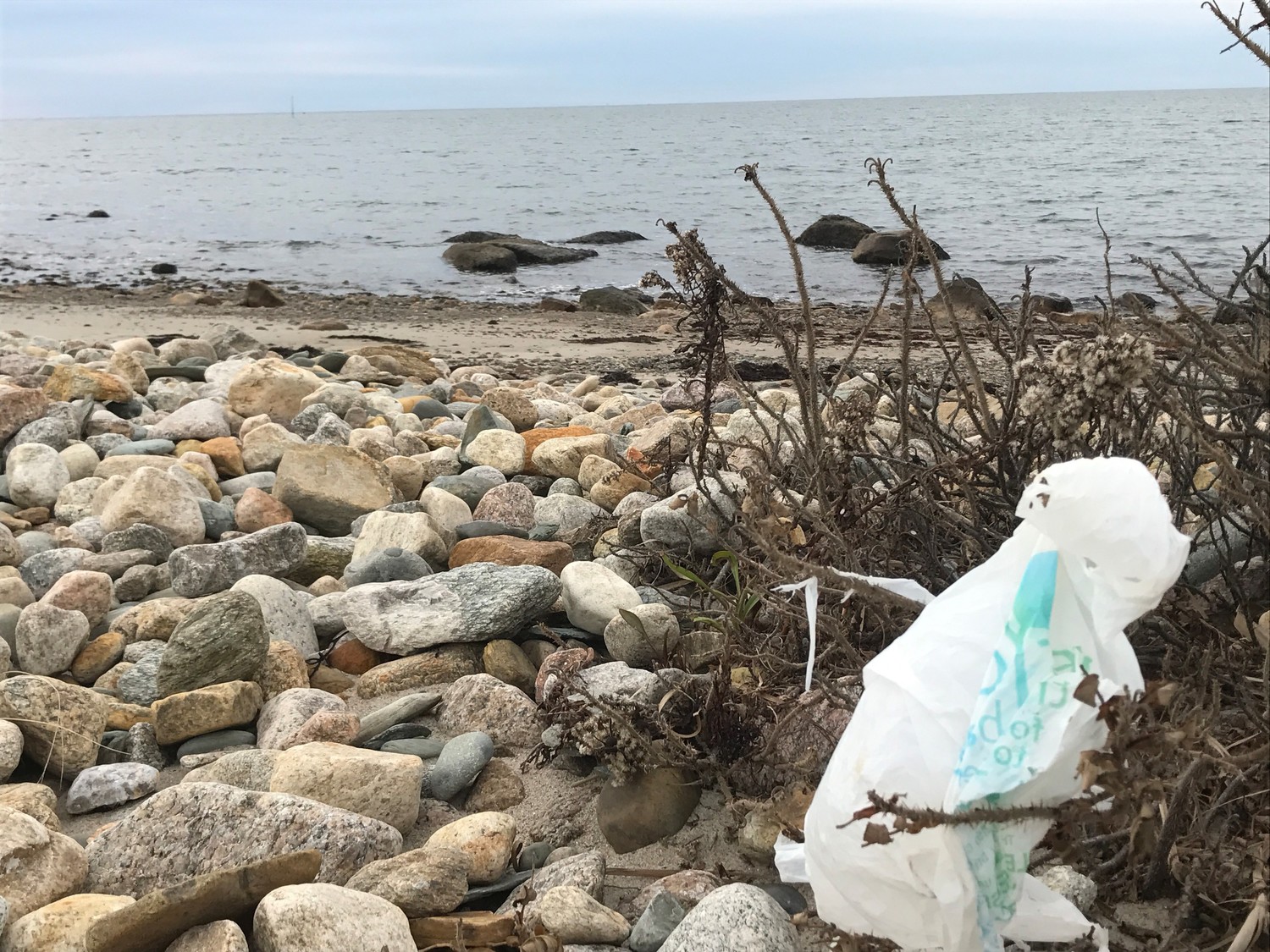Tiverton council not entirely sold on plastic bag ban
Outlawing single-use bags could hurt businesses, some say
TIVERTON — A bid to ban single-use recyclable bags in town met with mixed Town Council enthusiasm recently.
Bill Gerlach of Sustainable Sakonnet, a coalition of local environmental groups, and Dave McLaughlin of Clean Ocean Access, presented the idea, noting that four other towns — Barrington, Newport, Jamestown and Middletown — already have such bans in place, while others, Portsmouth among them, have begun the process. Mr. Gerlach said 60 Massachusetts towns have signed on, Boston among them, as have the states of California and Hawaii.
“We want to take advantage of the momentum” that is building in the state, Mr. Gerlach said. He said he wants to start the discussion, especially with town businesses, with the ultimate goal of achieving an ordinance banning the bags.
The impacted bags are the lightweight (less than 4 mm thickness) sort used at check-out lines in grocery stores, pharmacies, convenience stores and other businesses.
Americans, he said, use 100 million of these a year, the bags’ average time of use is 12 minutes, and they take 1,000 years to break down. Many, he said, find their way into the ocean, and onto beaches and roadsides.
Drive slowly down any Tiverton road and look around, he urged. “It is everywhere,” in trees, bushes …
He offered, as a model to consider, an ordinance used in other towns. Not all plastic bags are included — still allowed would be plastic barrier bags such as those used to wrap meat and produce, dry cleaning bags, bags larger than 28” by 30,” and bags thicker than 4 mm, among others.
Mentioning 80-year-old Bridgeport Seafood as an example, council member John Edwards said that “I don’t see any way I can possibly support it” if the ban will impact local businesses in a negative way.
When he looked at the proposal he said, “I tried to think who this would target in our community,” one which is already “known as relatively anti-business.” Restaurants, supermarkets and convenience stores would be among those impacted, he said.
And he had questions, including why the state of Rhode Island has not taken the lead rather than the towns.
Mr. McLaughlin replied that the intent is to start at the local level, make it a grass roots effort.
Council member Randy Lebeau said he uses 4 mm bags at his business but that if all businesses started doing so, “this could create a bigger problem” since thicker bags use three times as much plastic.
Mr. Gerlach said the ban could actually make life easier for businesses as customers would eventualy bring in their own bags, relieving stores of the responsibility of providing disposable bags.
“I think it is a good idea,” Councilor Patricia Hilton said, saying she often picks up stray plastic bags at Fogland and elsewhere.
“The best way to get people to buy into this,” she said, is to start at the grass roots level and include merchants and town boards including the Conservation Commission and Economic Development Committee.
Some, including the Litter Committee and Harbor Commission have already endorsed the idea.
“A lot of businesses are working on thin margins,” Ms. Hilton said, but a lot of those business owners live in Tiverton, care about the town and are bothered by all the trash they see.
A good starting point “would be to educate schoolchildren about the issue, she suggested. “When they see that there is something you can do to help the environment,” they tend to lead the way.
Several suggested that more should be done as a “stopgap” measure to encourage recycling of the single-use bags.
But Mr. Gerlach and Mr. McLaughlin said that, while there is already a program to recycle the bags (every large store is supposed to have a bag recycling bin), only about 5 to 10 percent of bags are actually recycled.
And the bags cannot be recycled with other recyclables since they tend to get ground up in the gears, Mr. Gerlach said.
Single use “plastic bags really aren’t recyclable, they are down-cyclable” — low quality plastic that can be re-used just once or perhaps twice before winding up in landfills, Mr. McLaughlin said.
For more on the effort, visit the Sustainable Sakonnet Facebook page.







